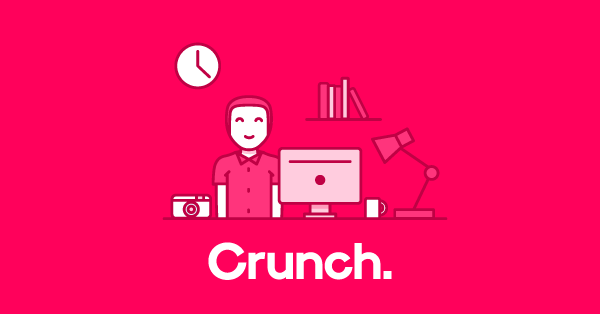Starting out as a freelancer can be a daunting process, not least from a financial perspective. We’ve partnered with Crunch, who offer specialist accounting services for freelancers, to help guide you through the maze. In this article, we’ll take a quick look at pay and tax for freelancers working as sole traders.
How do I pay myself as a sole trader, and how much should I put aside for tax?
You don’t need us to tell you that everyone loves to get paid. When you’re a sole trader, though, what sounds like a simple concept can get a little tricky.
As far as the law is concerned, there’s no legal difference between you and your business when you become a sole trader. You receive the income and you pay the expenses – including the tax liability, which you pay as an individual. That’s why we always recommend you put some money aside to pay your taxes, as HMRC have very strict deadlines.
So, how much should you be putting aside for tax, and how do you go about getting your hard-earned cash from your business into your pocket? Let’s explore.
How do I pay myself?
In principle, this one’s nice and simple: as a sole trader, you can just take the money from your business account and pay it to yourself. You need to record this as a “drawing” in your sole trader accounts and records. We’d always recommend that you use a separate business bank account for your sole trader finances, so you’ll always have a clear idea of what money your business has, and what you can spend on holidays and takeaways.
Don’t forget, you should also remember to keep a record of what money you’re drawing out of your business, along with any other incomings and outgoings.
How much should I put aside for tax?
That depends on how much your business is making. As a sole trader, you pay tax on your profits through your annual Self Assessment tax return. Your profit is defined as the income your business receives, minus any allowable business expenses.
The higher the amount of profit you report, the more you’ll pay in tax. We would always recommend that you set aside some money to settle your Income Tax and National Insurance liabilities each year.
For businesses earning up to £50,000, we would recommend that you put 25% of your profits aside for tax. Of course, the higher your earnings, the higher the percentage you should be setting aside.
For more information on how to pay yourself as a sole trader and how much you should set aside for tax, you can check out our article on the subject, in which we also cover how to get ready for your Self Assessment, how much to put aside if you’re earning more than £50k, or have other sources of income, such as dividends.
Crunch offer accounting services for freelancers, including access to simple online accounting software and advice from expert accountants. All ProductionBase members receive a 10% discount on Crunch accountancy packages for the first year, as part of your exclusive range of Member Discounts.
